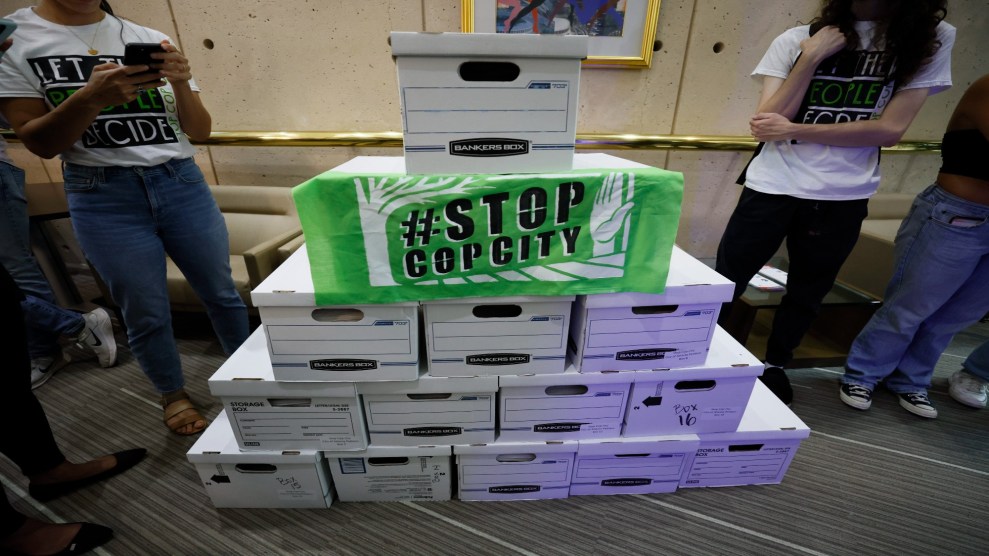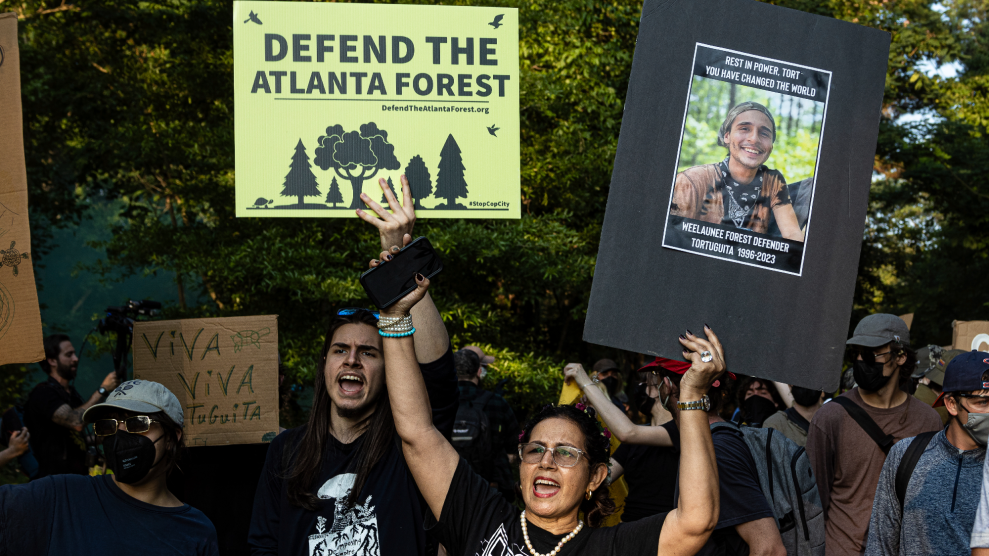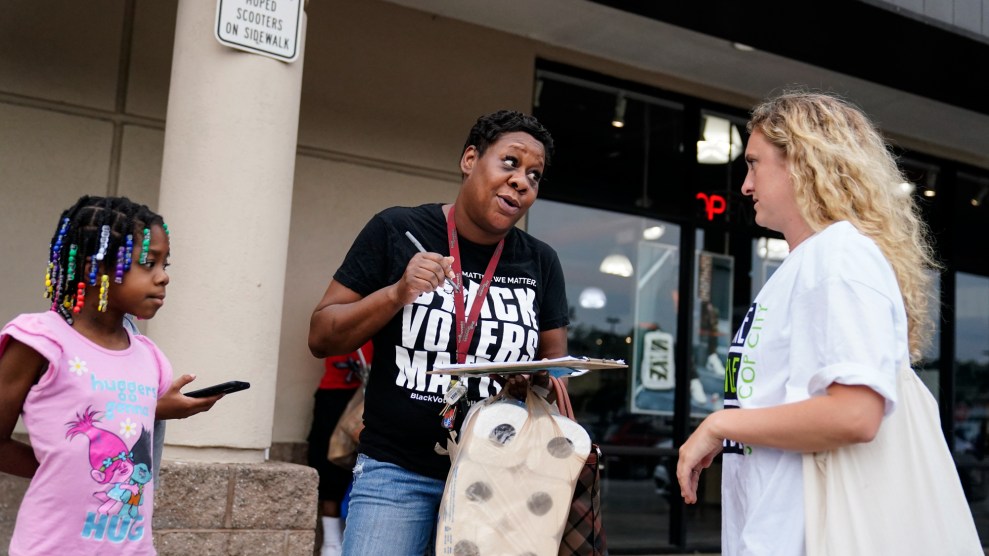
Miguel Martinez/AP
Last Wednesday, US District Judge Mark Cohen criticized Atlanta officials for refusing to verify over 100,000 petition signatures submitted in the effort to put a police training facility that has become known as “Cop City” up for a vote. Dubbed “Cop City” by Atlanta residents, this proposed $90 million facility would partially raze one of Atlanta’s few remaining forests. Since the Atlanta City Council voted to approve public funding for the project in June, activists have pursued a referendum strategy to put the training facility on the November 7 ballot.
Citing the city’s shifting goalposts and its recent claim that the “Cop City” referendum process isn’t even legal, Cohen expressed his frustration over the current state of affairs, writing, “The City could have avoided the conundrum that exists now” but instead “opted to approve a petition for a referendum it believed and later contended was illegal. A proverb dating back over four centuries ago once again applies here: Honesty is the Best Policy.”
Atlanta officials’ inconsistency combined with their refusal to begin the petition verification process has emphasized a point activists have been making for the past two years: the fate of “Cop City” is about democracy. How can Georgia’s leaders claim to be defenders of democracy when their own constituents are denied basic voting rights?
Prominent political leaders in Georgia appear to be finally waking up to that fact. Former Georgia State Representative Stacey Abrams’ voting rights group, Fair Fight Action, has spoken up against the city’s proposed plan to use signature matching, a process that disproportionately disenfranchises marginalized voters, to verify the “Cop City” referendum petition. Last weekend Abrams entered the fray herself, announcing her support for putting “Cop City” on the ballot. “The rarely-used citizen referendum is designed for precisely this type of fraught issue,” she told the Atlanta Journal-Constitution. “Regardless of one’s position on the subject matter, the leadership of the city should make every effort to allow direct citizen engagement by vote.”
Sen. Raphael Warnock (D-Georgia), one of the key architects of the Freedom to Vote Act. which would establish national standards for voting rights and challenge suppression tactics, joined Abrams in calling for a fairer process. In a letter to Atlanta Mayor Andre Dickens last weekend, the senator expressed concern with the city’s inconsistent rules, calling on officials to “err on the side of giving people the ability to express their views” and create “greater clarity around its process for verifying petition submissions.” As of Monday morning, more than 80 civil rights groups, including Black Voters Matter, the Center for Popular Democracy, and Georgia Conservation Voters, have called on the Atlanta City Council to commit to a referendum on the lease and funding for the police training center.
Meanwhile, more than 60 people were indicted on RICO charges last week by the state attorney general, for their alleged connections to Stop Cop City and Defend the Forest movements. (This is the same law Atlanta prosecutors used to charge former President Donald Trump for attempting to overturn the 2020 election and rapper Young Thug for his role in what officials say is a street gang.) Many of the Cop City activists who were indicted also face domestic terrorism charges after engaging in demonstrations in the spring. The RICO case, which is being pursued by Republican state attorney Chris Carr, has been condemned by the ACLU, the National Lawyers Guild, and the Southern Center for Human Rights. Just two days after the indictment, a group of faith leaders were arrested for chaining themselves to a bulldozer at the proposed construction site of the police training facility.
Mary Hooks, an organizer with the Stop Cop City Vote Coalition and head of the Highlander Center, which trained Rosa Parks in direct action and helped incubate the 1964 Freedom Summer, made it clear the action was in service of democracy. “We’re here to assert the people’s will,” she said outside of the construction site. “We will not be deterred.”













